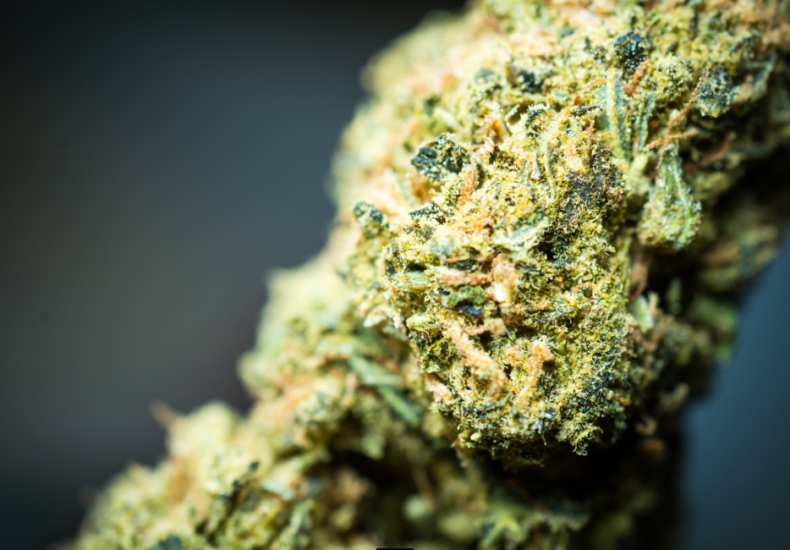
THCA Flower Frontier Natural Health
-
Table of Contents
THCA Flower Frontier Natural Health
In recent years, the interest in natural health remedies has surged, leading to the exploration of various plant-based compounds. One such compound that has garnered significant attention is THCA, or tetrahydrocannabinolic acid. This article delves into the potential health benefits of THCA flower, its unique properties, and its growing popularity in the natural health community.
Understanding THCA
THCA is a non-psychoactive cannabinoid found in raw and live cannabis plants. Unlike THC, which is known for its psychoactive effects, THCA does not produce a “high.” This makes it an attractive option for those seeking the therapeutic benefits of cannabis without the mind-altering effects.
How THCA Works
THCA interacts with the body’s endocannabinoid system, which plays a crucial role in maintaining homeostasis. By binding to cannabinoid receptors, THCA can influence various physiological processes, including pain perception, inflammation, and immune response.
Health Benefits of THCA Flower
Research into the health benefits of THCA is still in its early stages, but preliminary findings are promising. Here are some potential benefits:
- Anti-inflammatory Properties: THCA has shown potential in reducing inflammation, making it a potential treatment for conditions such as arthritis and inflammatory bowel disease.
- Neuroprotective Effects: Studies suggest that THCA may have neuroprotective properties, which could be beneficial for neurodegenerative diseases like Alzheimer’s and Parkinson’s.
- Anti-emetic Effects: THCA may help reduce nausea and vomiting, which can be particularly useful for patients undergoing chemotherapy.
- Pain Relief: THCA’s interaction with the endocannabinoid system may help alleviate chronic pain.
Case Studies and Research
Several case studies and research projects have highlighted the potential of THCA flower in natural health:
Case Study: THCA for Epilepsy
A study conducted by the University of California, San Francisco, examined the effects of THCA on patients with epilepsy. The results indicated a significant reduction in seizure frequency, suggesting that THCA could be a viable treatment option for epilepsy patients.
Research on Inflammation
A study published in the Journal of Pharmacology and Experimental Therapeutics explored the anti-inflammatory properties of THCA. The researchers found that THCA effectively reduced inflammation in animal models, paving the way for further research into its potential applications in human health.
How to Use THCA Flower
THCA flower can be consumed in various ways, each offering unique benefits:
- Raw Consumption: Consuming raw cannabis leaves or flowers in smoothies or salads preserves the THCA content.
- Juicing: Juicing raw cannabis is another popular method to intake THCA without decarboxylation.
- Tinctures and Oils: THCA tinctures and oils provide a convenient way to incorporate THCA into your daily routine.
Legal Considerations
The legal status of THCA varies by region. In some areas, THCA is classified similarly to THC, while in others, it is considered a separate compound. It is important to research local regulations before purchasing or using THCA products.
Consumer Experiences
Many consumers have reported positive experiences with THCA flower. Testimonials often highlight its effectiveness in managing pain, reducing inflammation, and improving overall well-being. These anecdotal reports, combined with emerging scientific evidence, suggest that THCA flower holds significant promise in the field of natural health.
Conclusion
THCA flower represents an exciting development in natural health, offering potential benefits without the psychoactive effects of THC. While research is still ongoing, early findings and consumer experiences suggest that THCA could play a valuable role in managing various health conditions. As interest in natural remedies continues to grow, THCA flower may become a staple in the pursuit of holistic well-being.
Recent Posts
- From Skepticism to Trust Fund: Transformative Experiences with Lear Resources
- Is CBD Oil Right for Your Dog? Understanding the Perks and Threats
- Is CBD Oil Right for Your Canine? Understanding the Benefits and Dangers
- Mushroom Coffee for Better Rest? Understanding Its Impacts on Tranquility
- Discovering Adaptogenic Features of Mushrooms in Your Daily Mixture